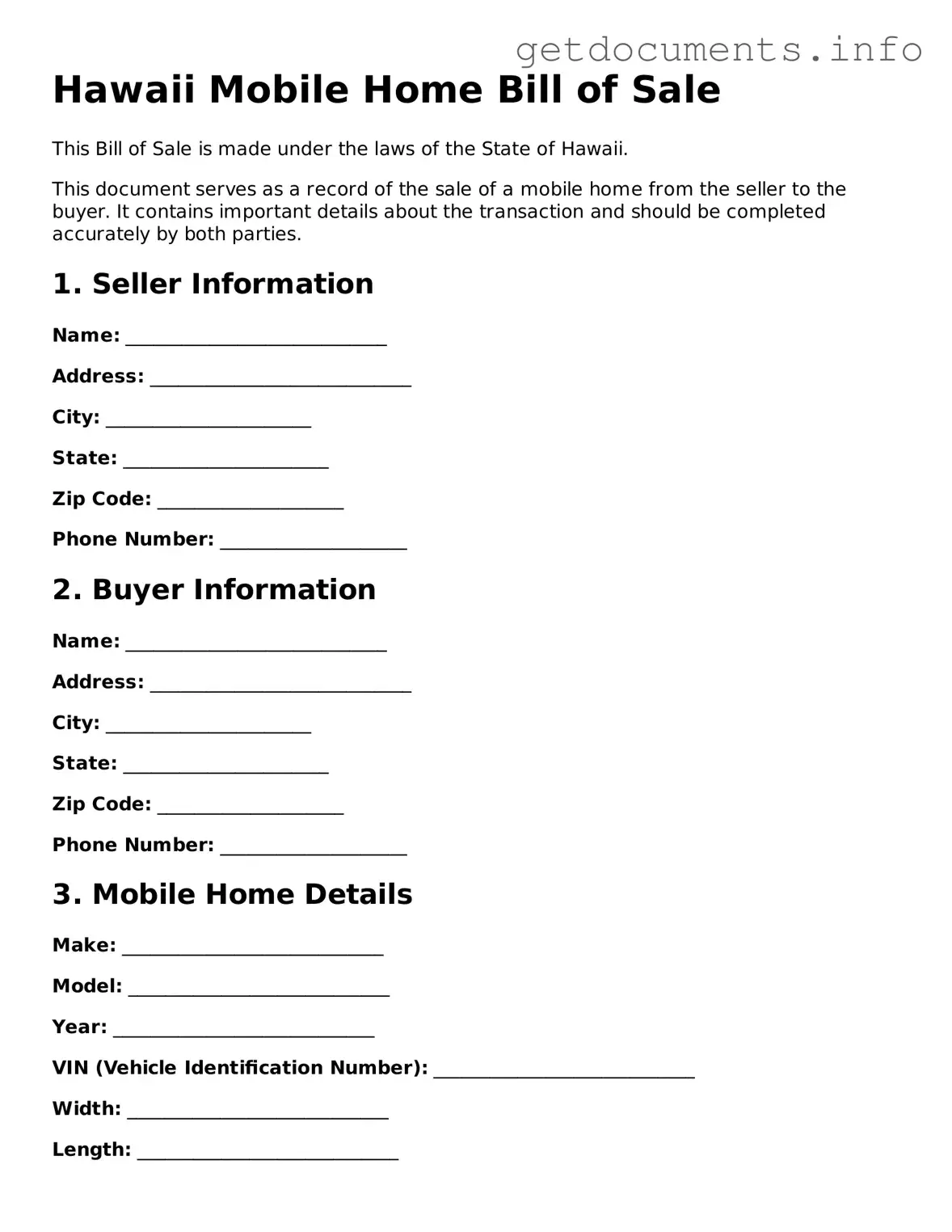Free Mobile Home Bill of Sale Template for Hawaii
The Hawaii Mobile Home Bill of Sale is a legal document that records the transfer of ownership of a mobile home from one party to another. This form serves as proof of the sale and outlines important details such as the buyer, seller, and mobile home specifications. To ensure a smooth transaction, it is essential to fill out this form accurately.
Complete the form by clicking the button below.
Access Mobile Home Bill of Sale Editor

Free Mobile Home Bill of Sale Template for Hawaii
Access Mobile Home Bill of Sale Editor
Got places to be? Complete the form fast
Fill out Mobile Home Bill of Sale online and avoid printing or scanning.
Access Mobile Home Bill of Sale Editor
or
⇩ PDF File
